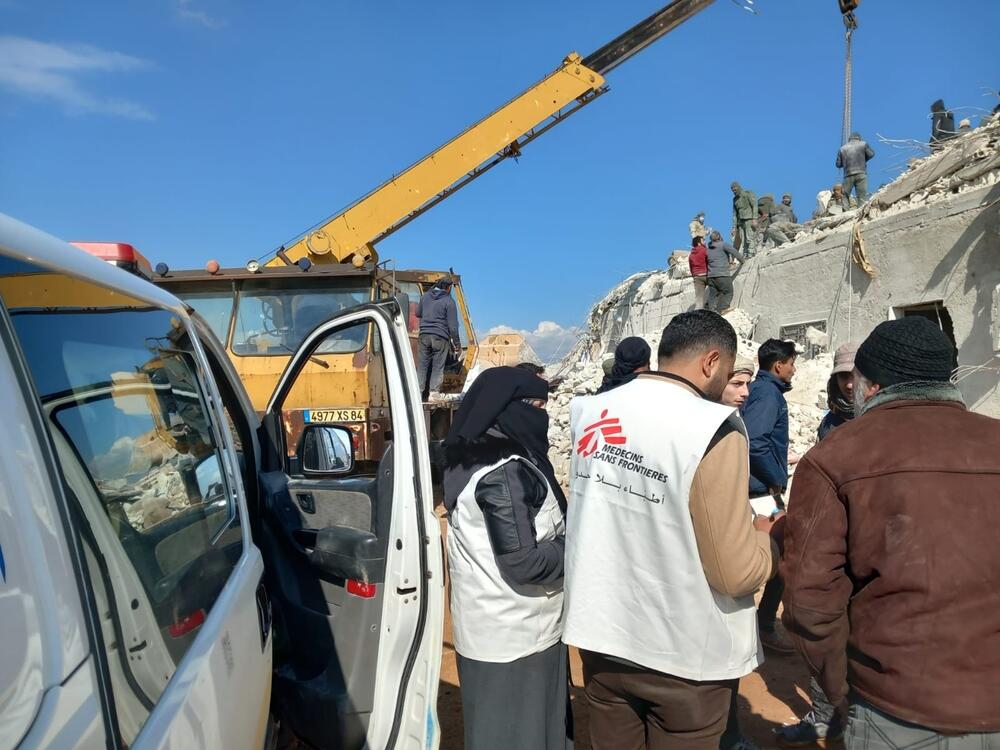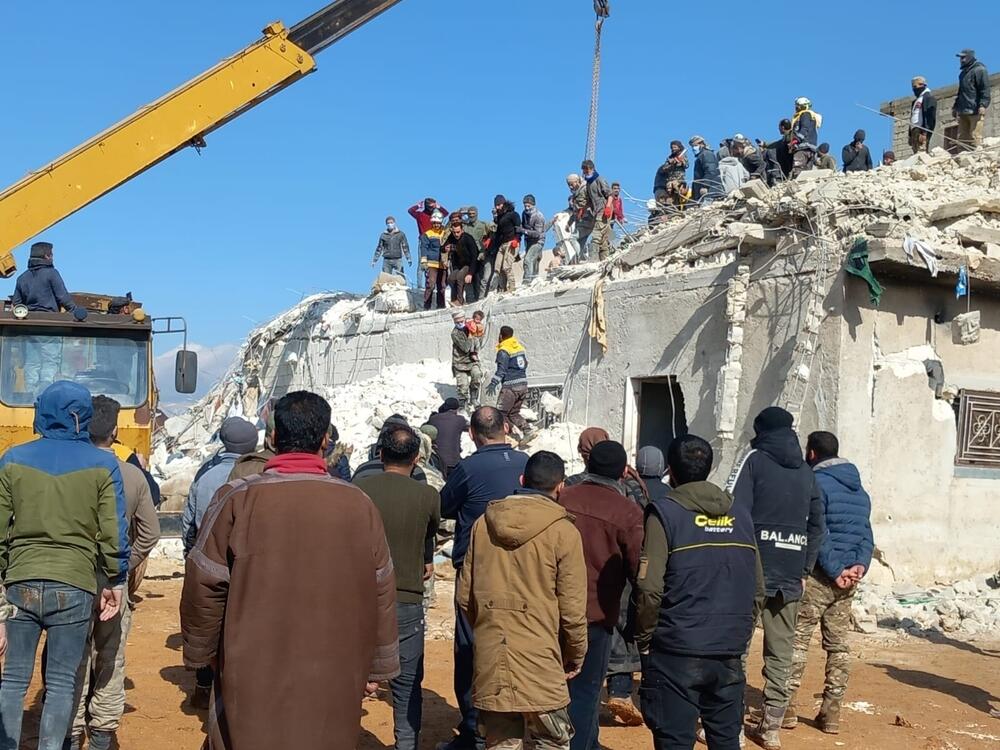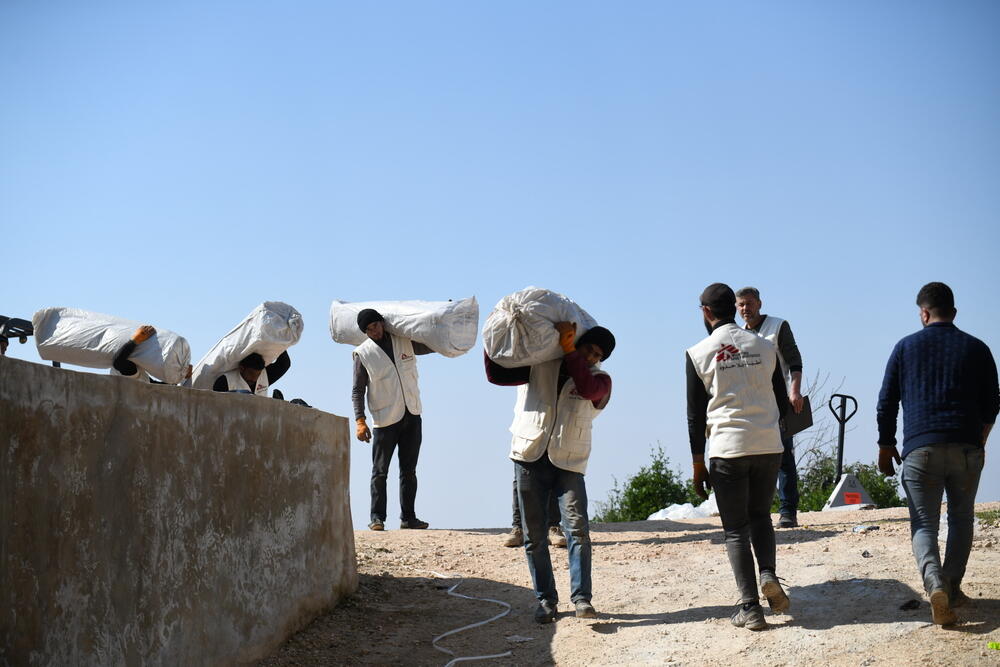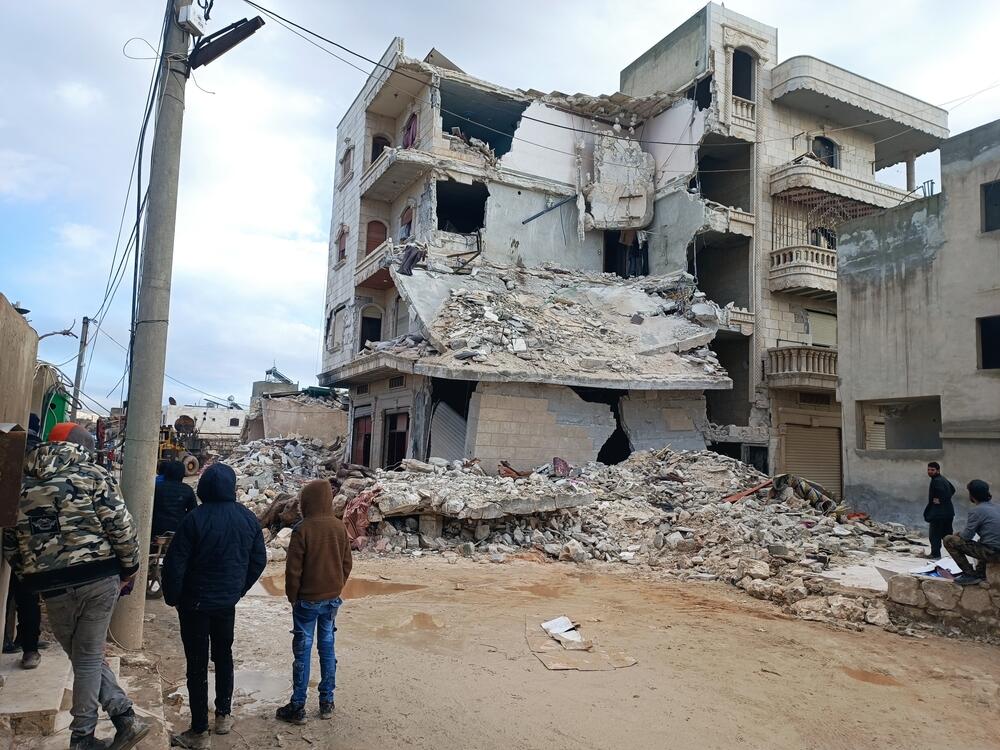"Syrian humanitarian workers responding to the earthquake are going through a double crisis"
13 February 2023
Following the powerful earthquakes that hit southern Türkiye and northwestern Syria on February 6, Doctors Without Borders/Médecins Sans Frontières (MSF) teams working in northwestern Syria have mobilised with local partners to respond to the increasing needs.
The situation in northwestern Syria is especially dire due to almost 12 years of war and the compounded effects of a tenuous economic situation, the COVID-19 pandemic and, more recently, a cholera outbreak. This makes the current emergency even more difficult to manage, as the health care system was already fragile and dependent on humanitarian aid.
Sherwan Qasem has worked with MSF for more than 10 years, in Türkiye, Syria, Somalia, and Lithuania. He is originally from Syria and now works with MSF’s emergency team in Amsterdam. Below, he shares his personal experience.
When I heard news of the earthquakes on Monday morning, I immediately tried to contact my family and friends in Syria. I couldn't reach them, as there was no electricity or internet. Sitting there, imagining what might have happened, was very stressful.
I finally managed to get through to my mom on the phone. She said everybody felt it was the last minute of their lives. Luckily, all my family members were ok. But many people are struggling. A lot of houses and buildings were destroyed, resulting in a shocking number of deaths and injuries and causing damage to infrastructure in Türkiye and in Syria. Thousands of people are now homeless.
"A lot of houses and buildings were destroyed, resulting in a shocking number of deaths and injuries."
In northwestern Syria, MSF-supported hospitals have seen thousands of injured people and hundreds who died. We are expecting the numbers to increase, as there will likely be fewer survivors found at this point.
I'm in touch with my colleagues in the western Aleppo countryside, where I used to work with MSF. They say the situation is extremely dire. This area has been at war for more than 11 years, so the medical sector was already struggling before the earthquake.
MSF has two main priorities right now. First, to support the hospitals and existing health facilities to respond to this emergency with supplies and training. We also provide them with fuel so they can have electricity and heating. Syria—like many countries around the world—is struggling with the energy crisis stemming from the war in Ukraine. They don't have enough fuel to run generators.
The second is to bring in supplies. One of the main problems is the lack of access to this area. The only access is through one humanitarian corridor. For years it has been difficult to deliver support and supplies to this region and unfortunately it has not been any easier in the last few days. No aid could reach the area in the first 48 hours after the earthquake—the vital timeframe for survivors. We call ourselves Doctors Without Borders, but unfortunately there are many borders, and we are trying to overcome them and find different ways to deliver this aid to these people in need.
There are around 4 million people living in this region, 2.8 million of whom have already been displaced—some more than once. I’ve met people who have been displaced 20 times. Many of these people have been unable to leave the country because they lack resources, or they choose to remain to take care of their relatives who are sick, who need support, or who are unwilling to leave the country of their birth. On top of this, there are more than 3.6 million Syrian refugees in Türkiye, the majority of whom were living in the four provinces most affected by the earthquake. When people fled Syria into Turkey to seek safety, most wanted to stay as close as possible to the Syrian border so that they could one day return home.
"One of the main problems is lack of access to this area. The only access is through one humanitarian corridor."
One of the biggest needs now is mental health. Imagine if you are living in a camp, in a tent, in a makeshift house, after maybe many years of conflict without any kind of hope for what may happen tomorrow? The mental health burden is severe.
Yesterday my mother said to me: “My son, I don't know what may happen tomorrow. Every year for 12 years we have hoped that this would be the last year of our suffering.”



